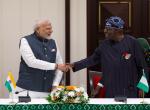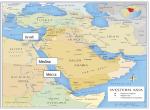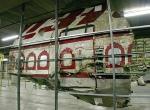Before the Tiananmen Student Movement of 1989, Deng Xiaoping, architect of China’s reform and opening to the wider world, repeatedly urged his countrymen to maintain a stable political environment. He emphasized that China would not tolerate disturbances; he even said explicitly that the Chinese leadership would shed some blood if that became necessary in the larger interests of the country. Citing the example of Democracy Wall, the first spate of the democracy movement in 1978 in post-Mao China, and the famed dissident Wei Jingsheng, he said: “We put him behind bars and the democracy movement died. We have not released him but that didn’t raise much of an international uproar.”
After the massacre at Tiananmen Square, the General Secretary of the Communist Party of China, Zhao Ziyang, was sentenced to life imprisonment for expressing his sympathy with the demonstrators. When he died in 2005 as a prisoner of the state, the leadership performed his last rites quietly, away from the public gaze and international attention.
Two decades have elapsed since the nascent democratic movement at Tiananmen Square was quelled. But because of the betrayal of Deng Xiaoping’s political wisdom by the Chinese leadership the democracy movement in China is still alive. China, now economically and militarily robust, is raising a hue and cry against the selection of Liu Xiaobo for this year’s Nobel Peace Prize.
The brutality demonstrated at Tiananmen has not adversely affected the culture of protest in China. Protests, demonstrations, petitioning to the higher authority, mob violence and riots by people who feel victimized in the new socio-economic environment resulting from the socialist market economy have risen dramatically after Tiananmen. While the students and intellectuals have largely remained aloof from the protest movements in both the rural and urban areas of the country, dissidents of the Tiananmen era remain convinced of the democratic transformation of Chinese politics. Liu Xiaobo belongs to that generation and the Nobel Committee’s decision to award him the Nobel Peace Prize of 2010 is recognition of democratic dissent movements in China.
The credentials of some selections of the Nobel Peace Prize Committee have attracted controversy. The fact remains, however, that most of those on whom this honour is bestowed have been harbingers of political change in their country. Even today, authoritarian and totalitarian regimes feel uneasy when political prisoners in their territories are selected for the award.
To revert to China: In 1989 when the Dalai Lama was awarded the Nobel Peace Prize the Chinese leadership behaved in a typically belligerent fashion. They expressed displeasure when the dissident writer Gao Xingjian was selected for the Nobel Prize for Literature in 2000. They protested vehemently when in 2005 Rebiya Kadeer, leader of the World Uyghur Congress, was nominated for the Nobel Peace Prize. To obstruct the Norwegian Nobel Peace Prize Committee from selecting Liu Xiaobo for the honour, the Chinese government put pressure on the government of Norway. In September the Chinese Foreign Ministry spokesperson Jiang Yu told reporters that Liu Xiaobo, the author of the “2008 Charter”, has been sentenced to imprisonment for violating Chinese law. She expressed the government’s view that Alfred Nobel’s intention was to give the Nobel Peace Prize to those who contributed to the promotion of national peace, interstate friendship, disarmament and propagation of peace, whereas Liu Xiaobo has done exactly the opposite. After the Peace Prize was declared, the government even summoned Norway’s Ambassador to protest the Nobel Committee’s decision. All this indicates that China severely lacks understanding of how institutions can perform independently in democratic countries. China has claimed that Liu Xiaobo is a criminal and called the award “an arrogant showcase of Western ideology”. The behaviour of the Chinese regime shows that despite occasional aberrations, the Nobel Peace Prize is significant for those who continue to demonstrate small acts of resistance to authoritarian regimes.
There were five other Chinese dissidents in the list of 237 persons nominated for this year’s Nobel Peace Prize. They are: Hu Jia, a democracy, environment and HIV/AIDS rights activist; Chen Guangcheng, a visually impaired human rights activist who works in rural China and gives legal advice to the rural residents; Gao Zhisheng, a human rights lawyer; Bao Tong, a former CPC official and a close aide to Zhao Ziyang (he managed to sneak Zhao’s memoirs out of the country – these were published in England in 2009); and Rebiya Kadeer. All five are currently in prison or under house arrest or exiled. Rebiya’s two sons are imprisoned and one daughter is under house arrest in Xinjiang.
Liu Xiaobo possibly does not know about the award as yet. In objection to his selection a group of exiled overseas Chinese writers and dissidents have written a letter to the Nobel Prize Committee and Mr. Vaclav Havel. They picked up Liu’s statement during the trial titled “I have no enemy – my final statement” (我没有敌人 – 我的最后陈述) where he said a few good things about the post-Mao reforms in China. Liu’s testament was, however, neither self-contradictory nor meant to appease his persecutors. He said that “hatred corrupts wisdom and sense of harmony. A sense of enmity pollutes the spirit of a nation.” He blamed Mao Zedong’s philosophy of diehard class struggle for sowing the sense of hatred against the enemy in China.
Sources:
Fu Zhengyuan, Autocratic Tradition and Chinese Politics, Cambridge University Press, 1993, p. 340.
Bao Pu, Renee Chiang and Adi Ignatius, translated and edited, Prisoner of the State –
a Secret Journal of Zhao Ziyang, London, Simon & Schuster UK Ltd, 2009.
中国外交部反对将诺贝尔和平奖颁给刘晓波
at http://cn.reuters.com/article.CNTopGenNews/idCNCHINA-3084220100928?feedType=RSS&feedName=CNTopGENNews.
中国警告勿授予刘晓波诺贝尔和平奖
at http://www.bbc.co.uk/zhongwen/simp/china/2010/09/100928_china_nobel.shtml.
關心中國民主的海外華裔給諾貝 栐u獎委員會和哈維 栂壬囊环庑Å
at http://www.fireofliberty.org/article/12861.asp.
刘晓波:我没有敌人——我的最后陈述
at http://www.bullogger.com/blogs/stainlessrat/archives/351520.aspx.
------------------------------------------
Published Date : October 13, 2010







.jpg)


Post new comment